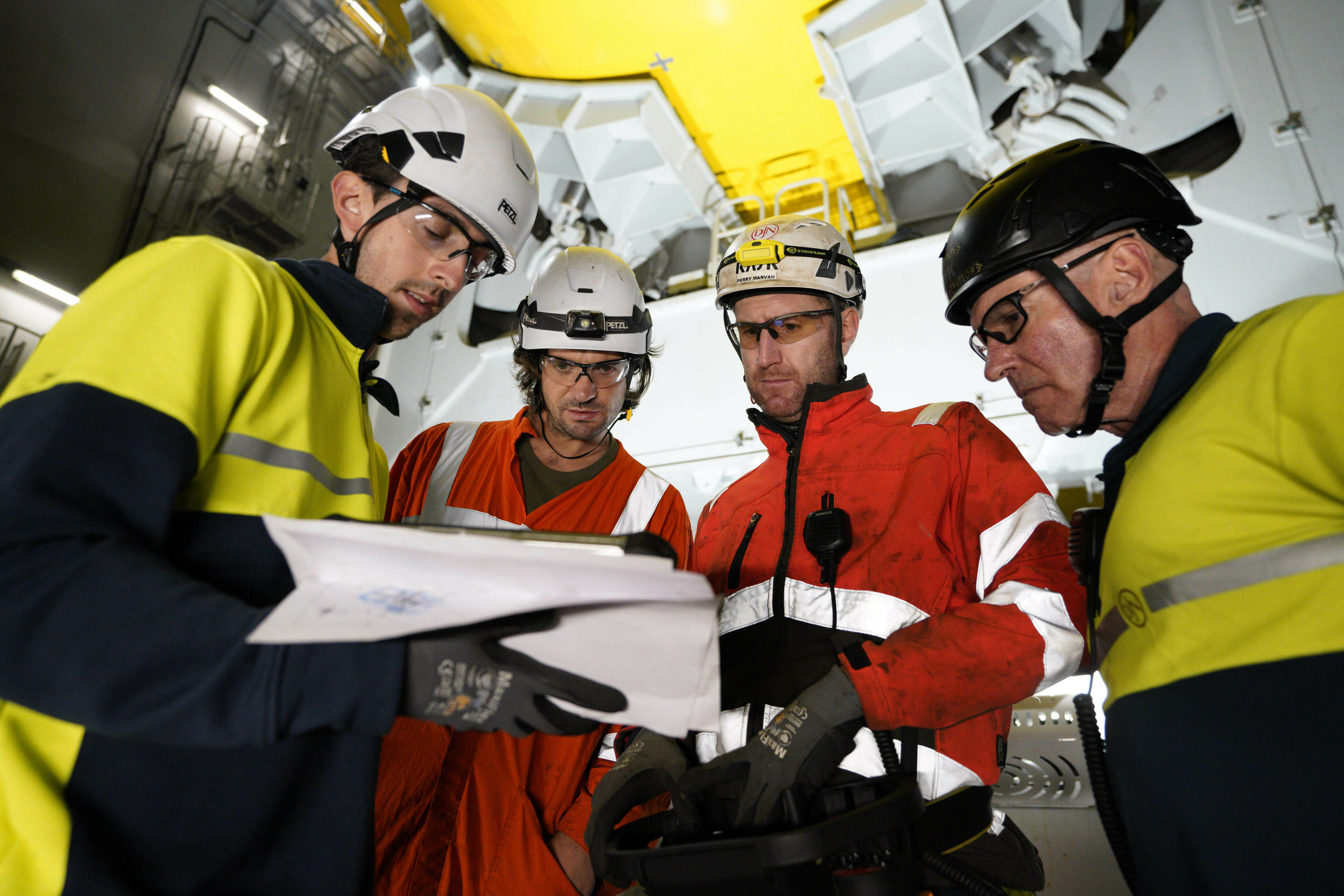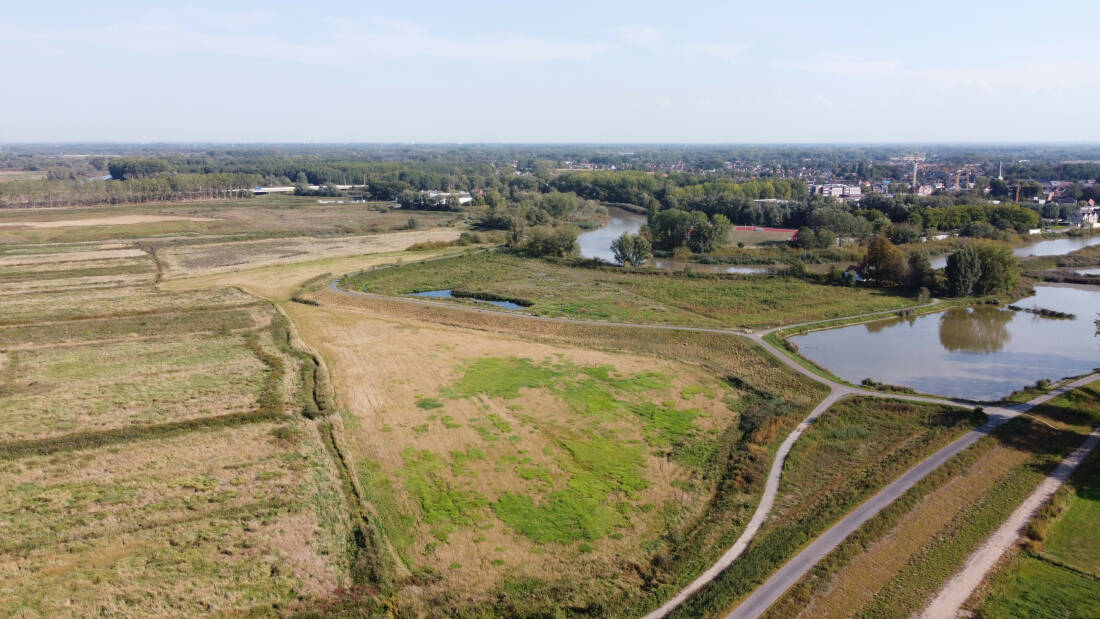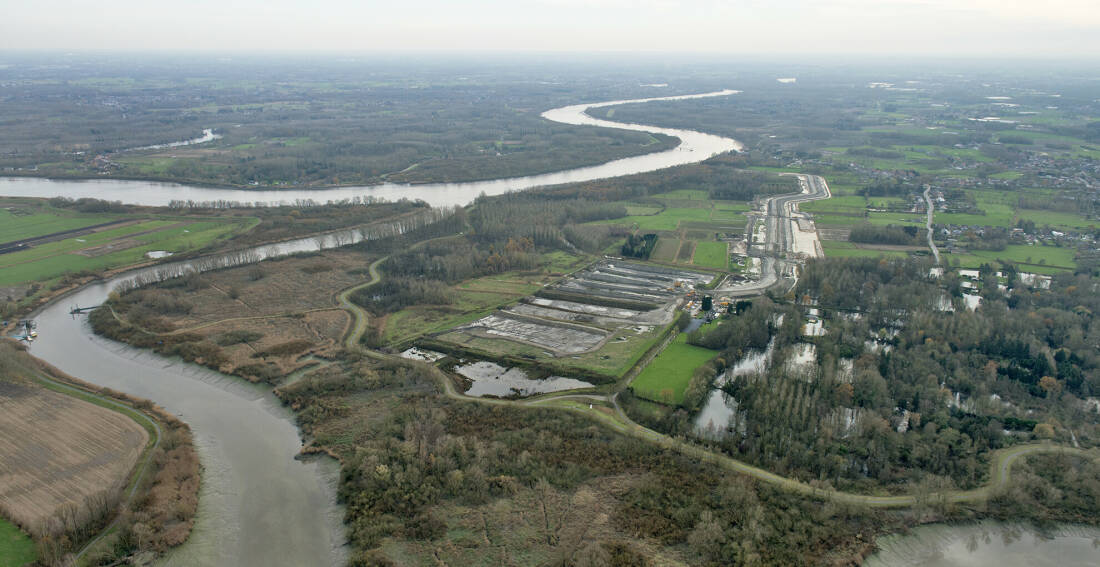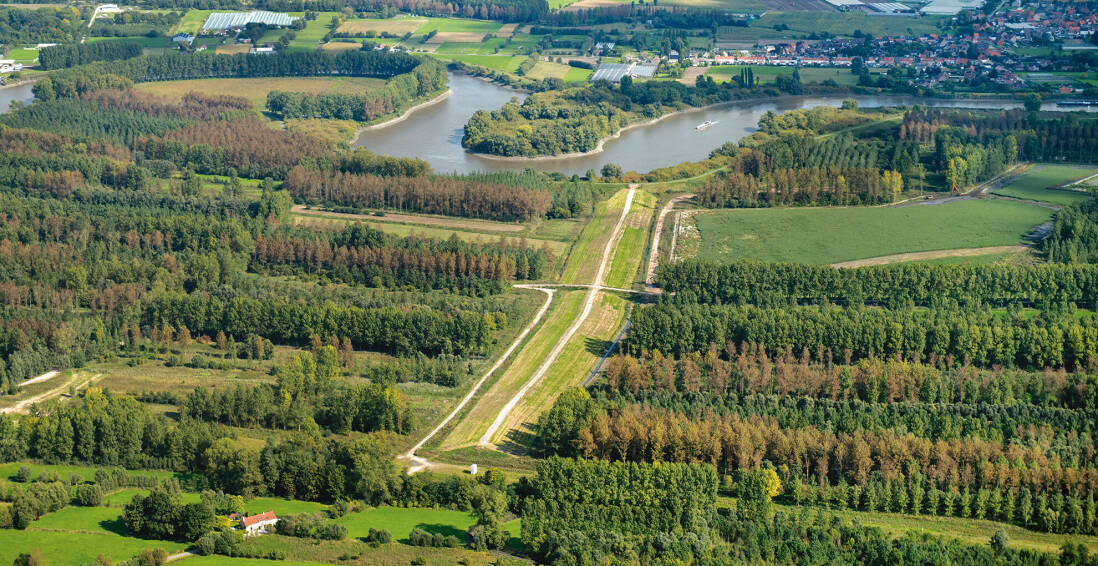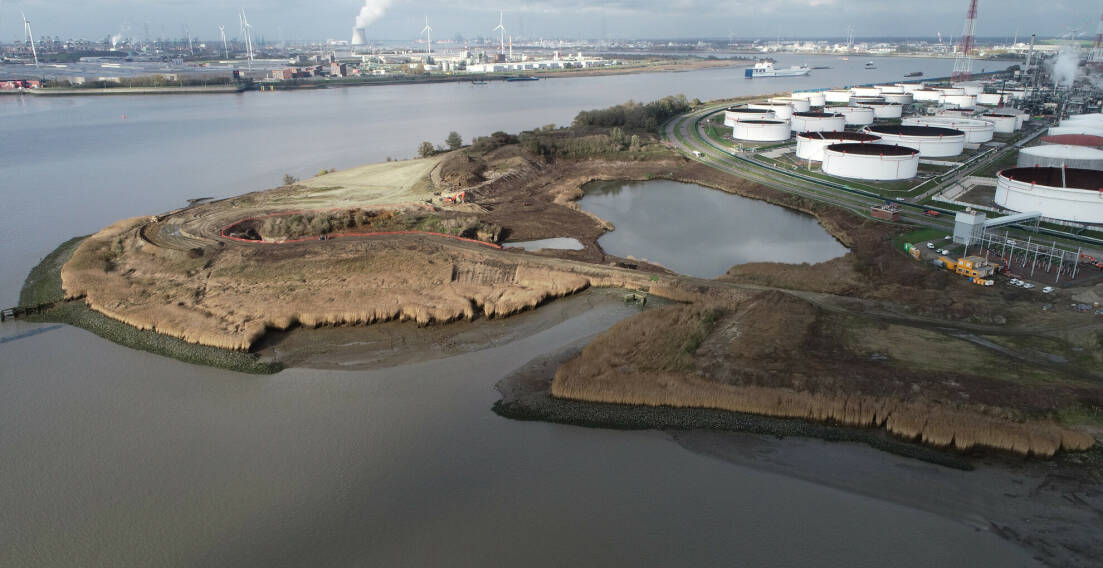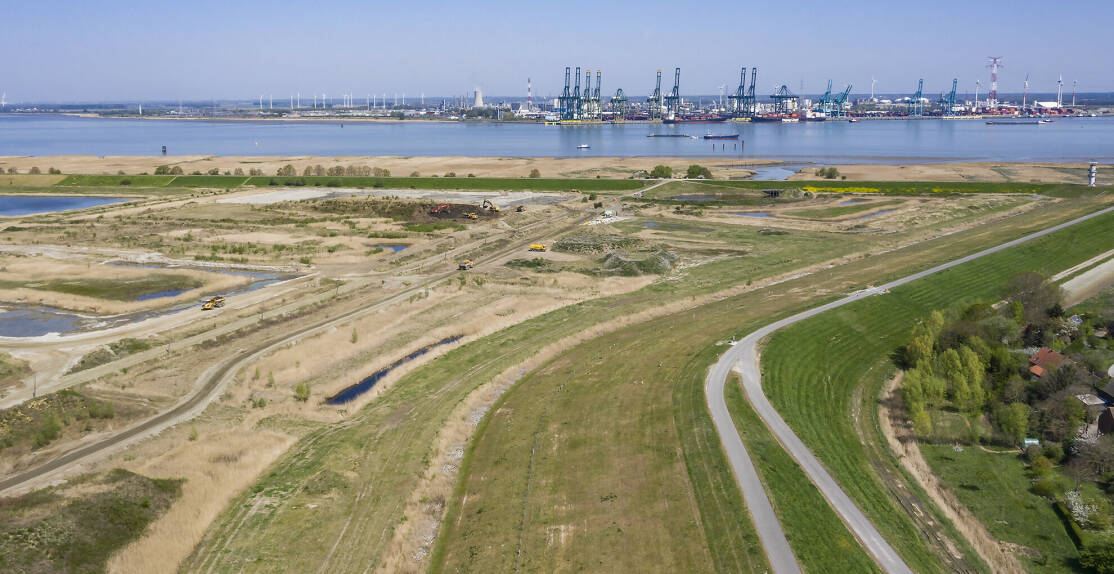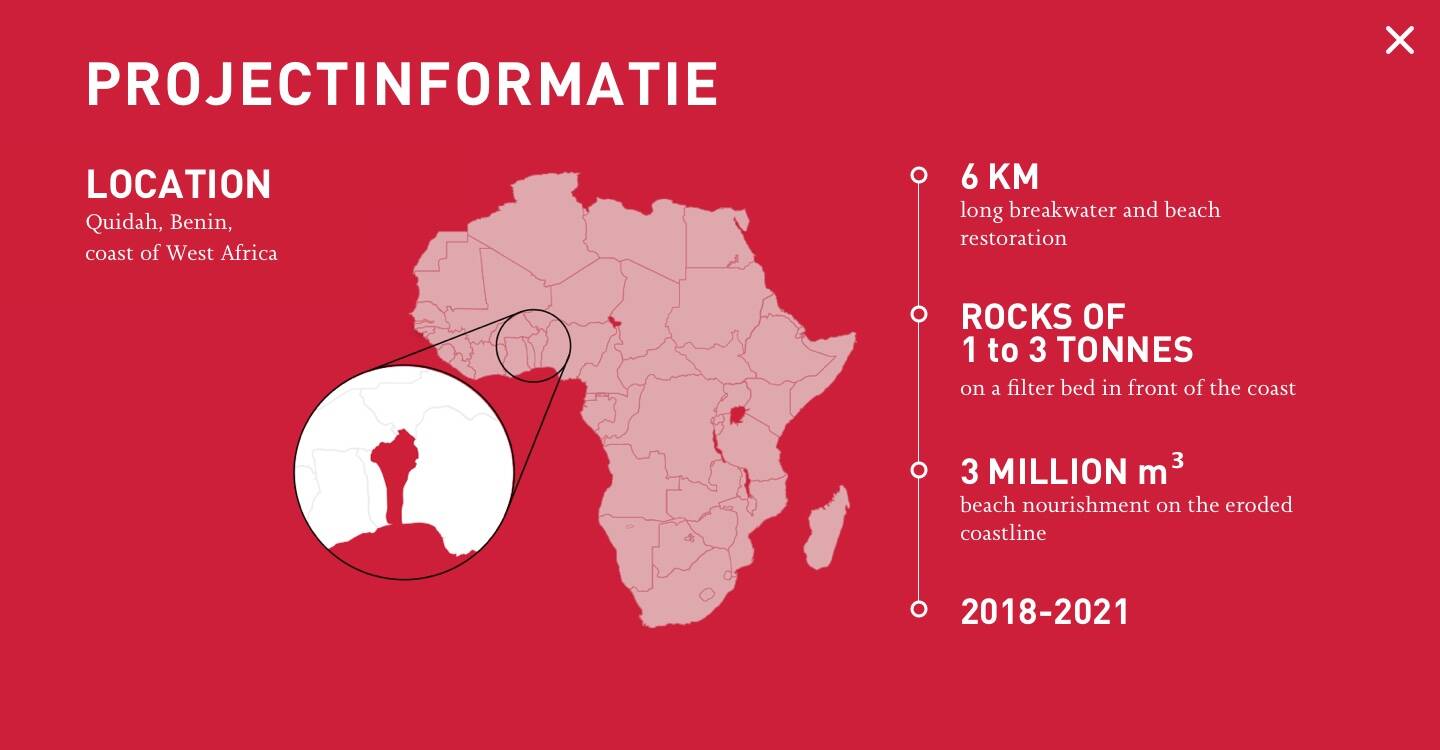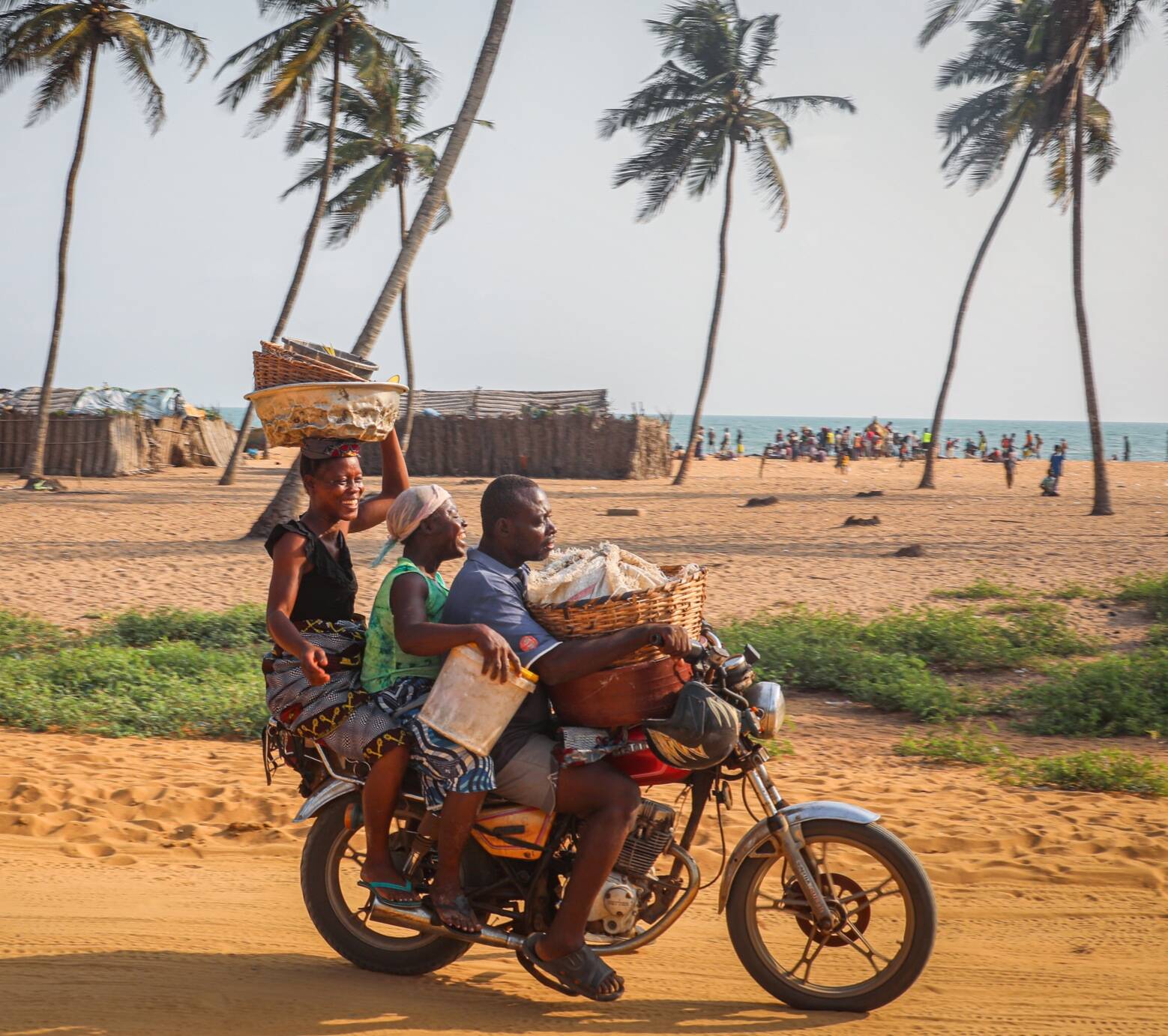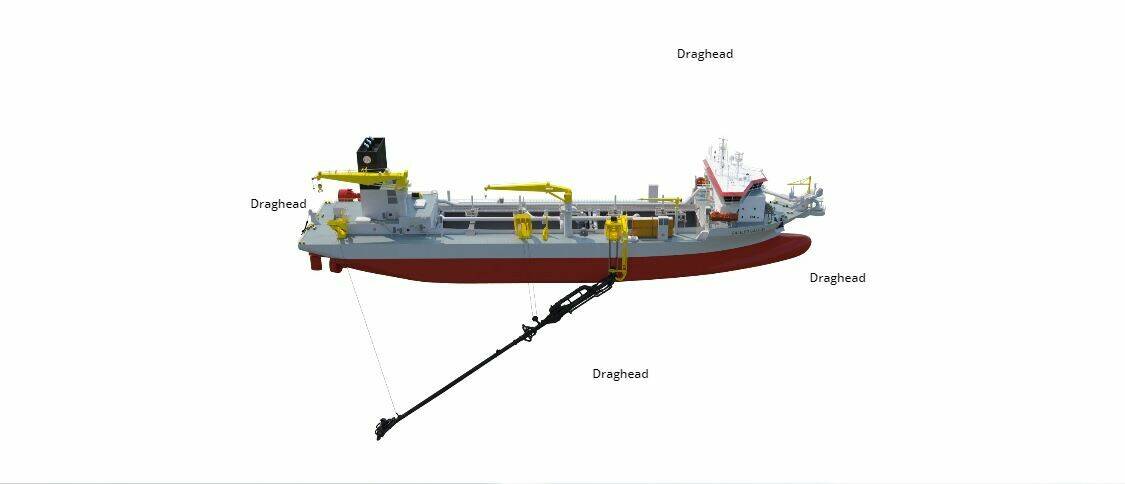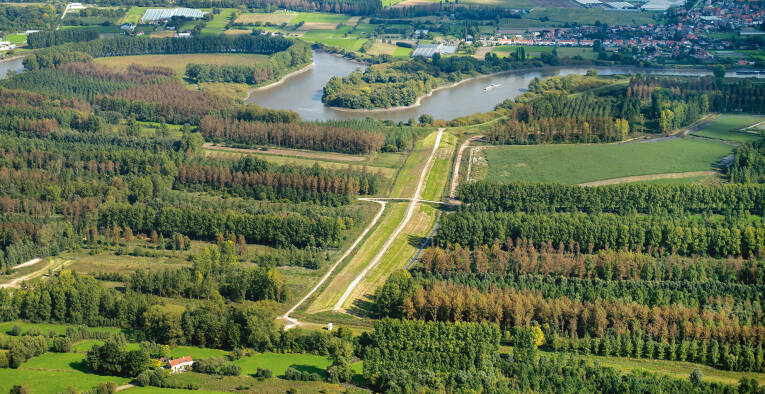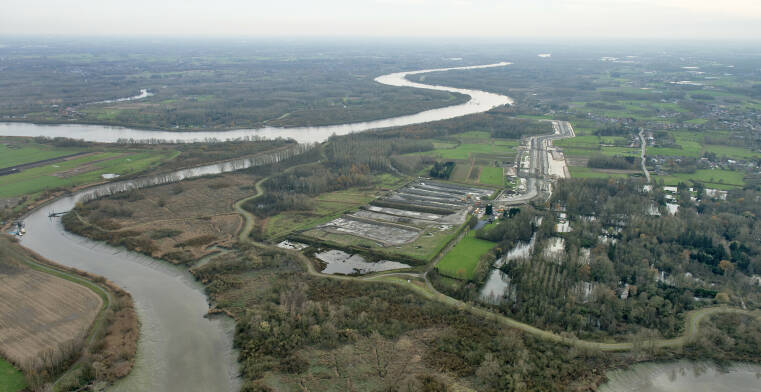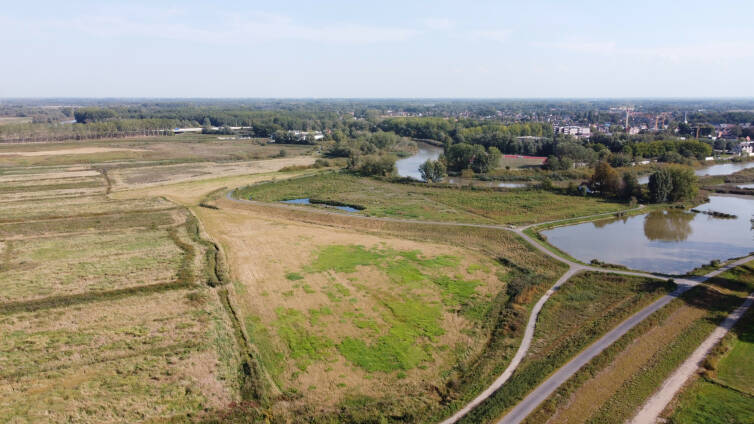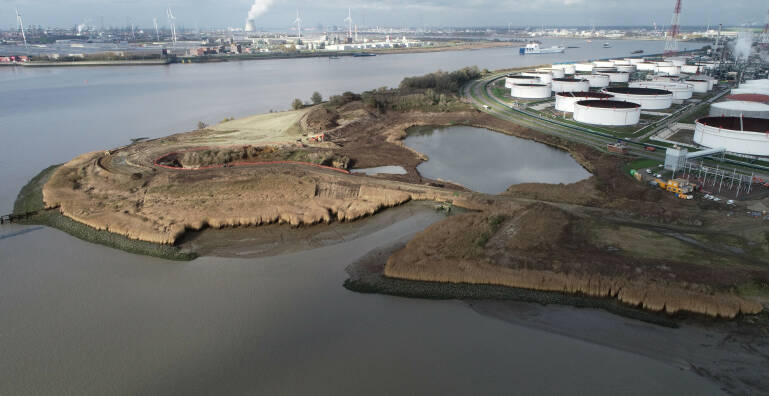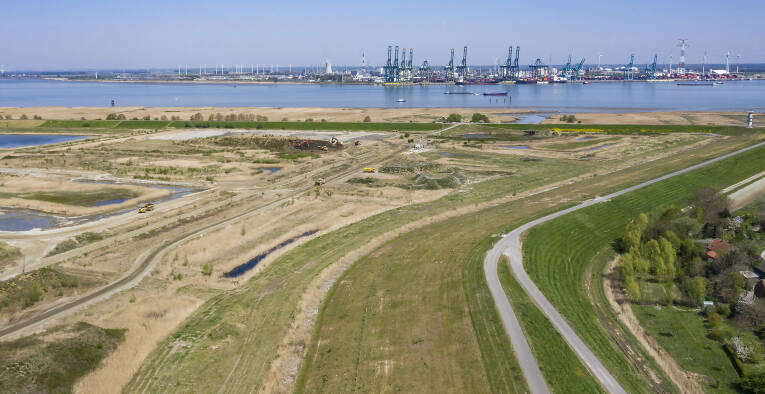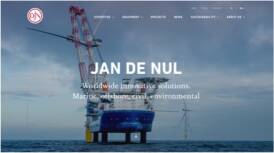Looking for a partner to realise your dredging projects?
Business Development Manager
Stefan Bruggeman
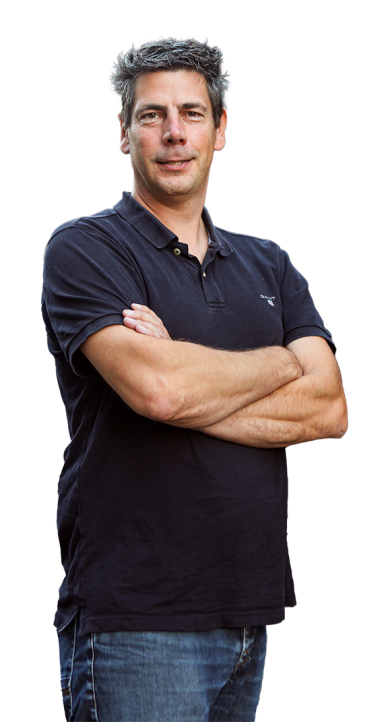



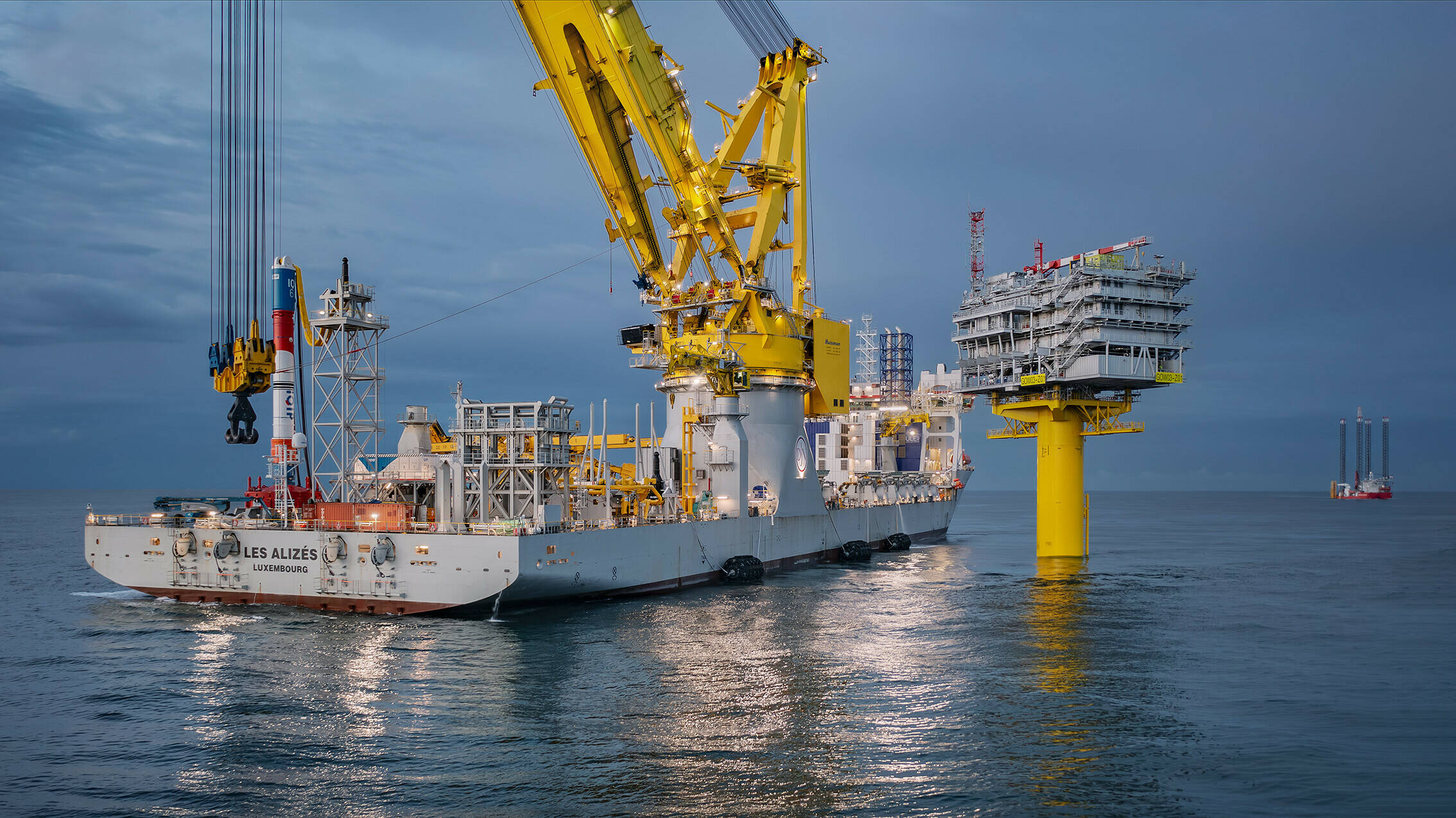
Chantier de l’Atlantique in Saint-Nazaire, France, fabricated the 1,900 tonnes offshore substation and 350 tonnes modular support frame. Because of the size and weight of both components, the transport overseas needed to be prepared meticulously. The size of the barge, the power of the tugboat, the exact position of both components on board, the sea fastening, the position of the rigging tools... everything was prepared down to the last detail, as no manipulation was possible once the barge had left the yard.
Looking for a partner to realise your offshore projects?
Manager Offshore Renewables
Peter De Pooter

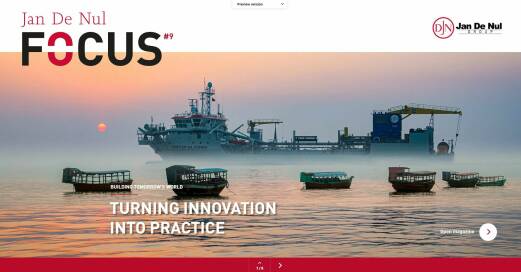
You can find more facts and figures of Les Alizés in our FOCUS #9
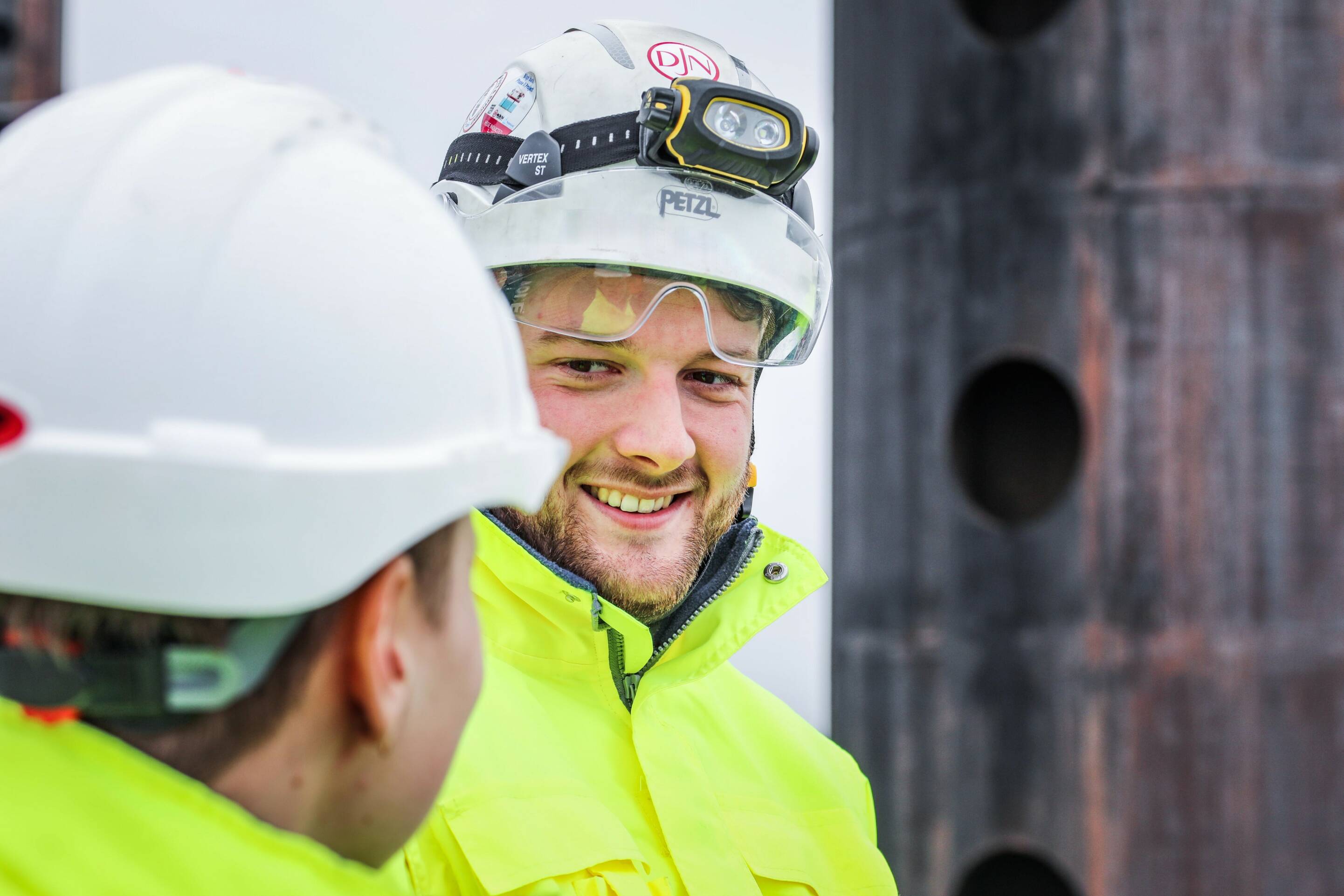
Germany
The Netherlands
distance to shore
The larger DolWin Kappa convertor station,
in turn, converts the delivered AC of several German offshore wind farms to 320kV DC. Through a 900MW HVDC DolWin6 export cable link the electricity is brought to shore.
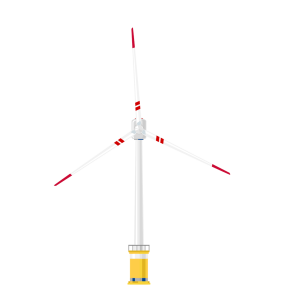

For the installation of the monopile foundations we used the IQ6, the largest hydrohammer in the world, fitted with the PULSE system of IQIP for noise reduction at the source.
The installation of this offshore substation is part of the bigger project Gode Wind 3 offshore wind farm of Ørsted. The construction of this 242 MW offshore wind farm is taking place in parallel with the company’s 900 MW Borkum Riffgrund 3 project. Les Alizés is contracted to install all 107 monopile foundations needed for both wind farms, including this offshore substation and connecting modular support frame.
from Eemshaven to installation location
from Chantier de l’Atlantique to Eemshaven
of preparations for smooth transport
to reach the
German North Sea
Windfarm
Eemshaven
Yard in Saint-Nazaire
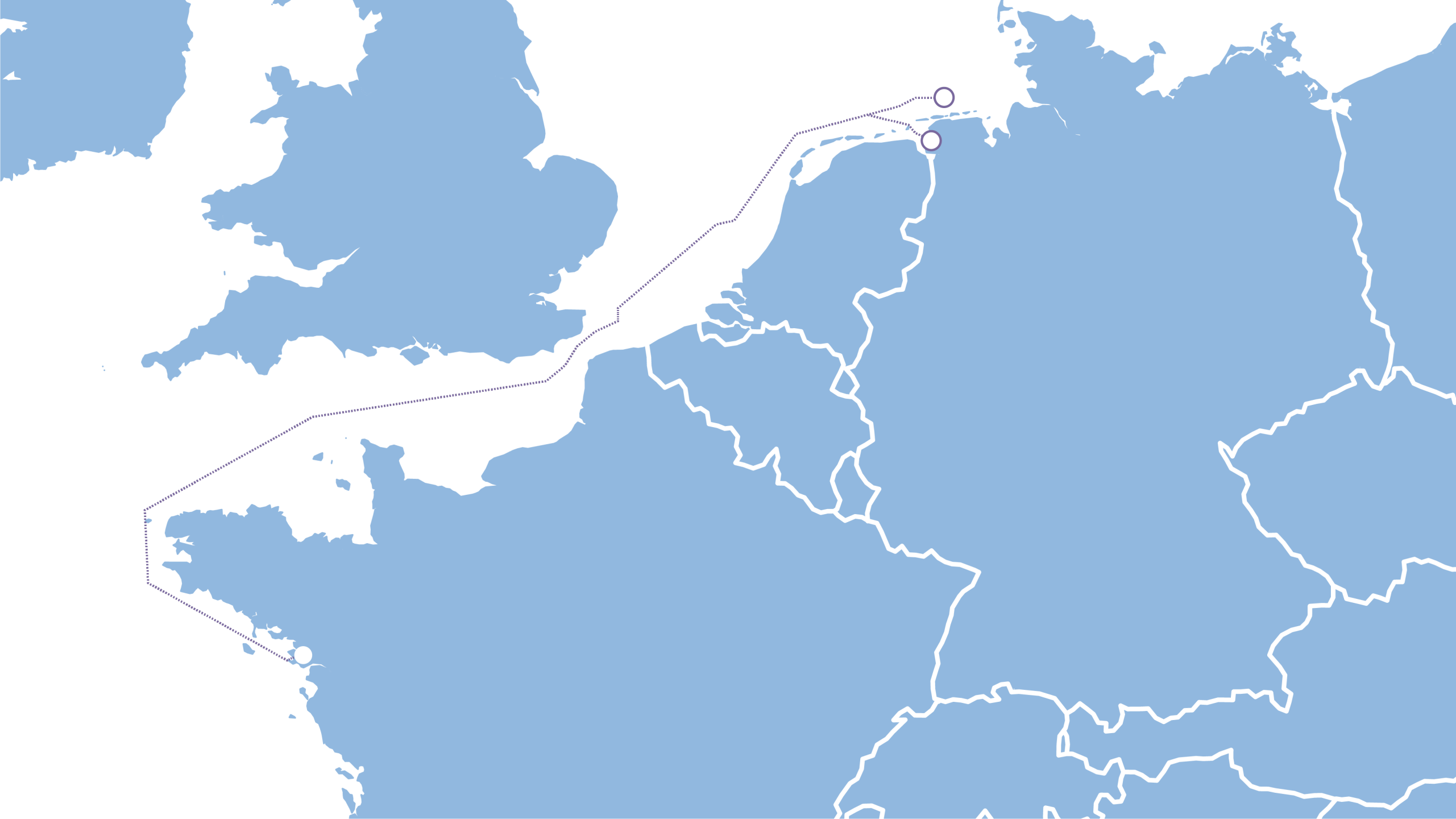
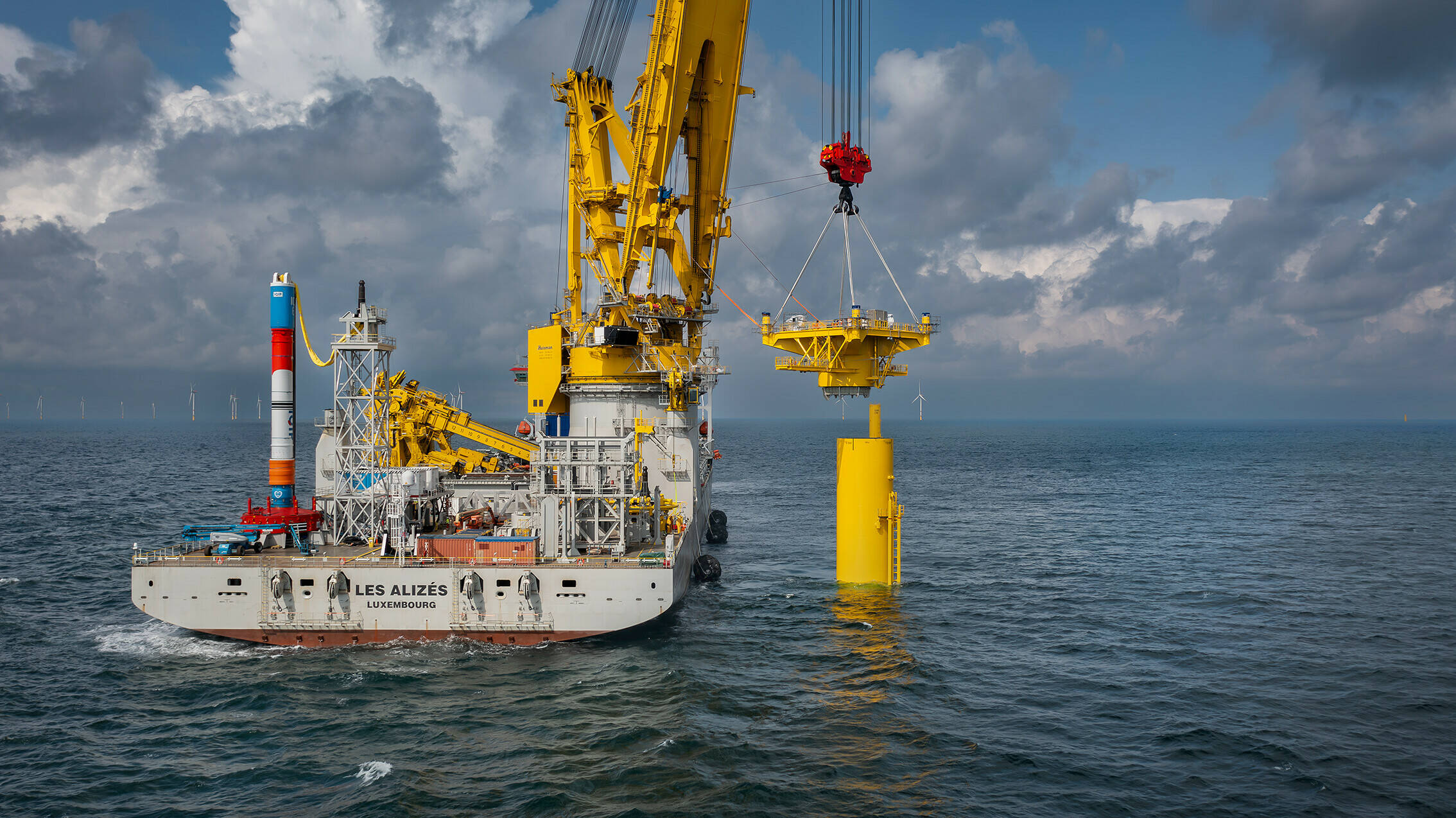
A modular support frame connects the monopile foundation to the offshore substation’s topside. Les Alizés lifted the frame onto the monopile after which our team secured it with bolts.
The top of the frame has four connection points onto which the OSS fits, thus anchoring both parts together.

Planned wind farms



distance to shore
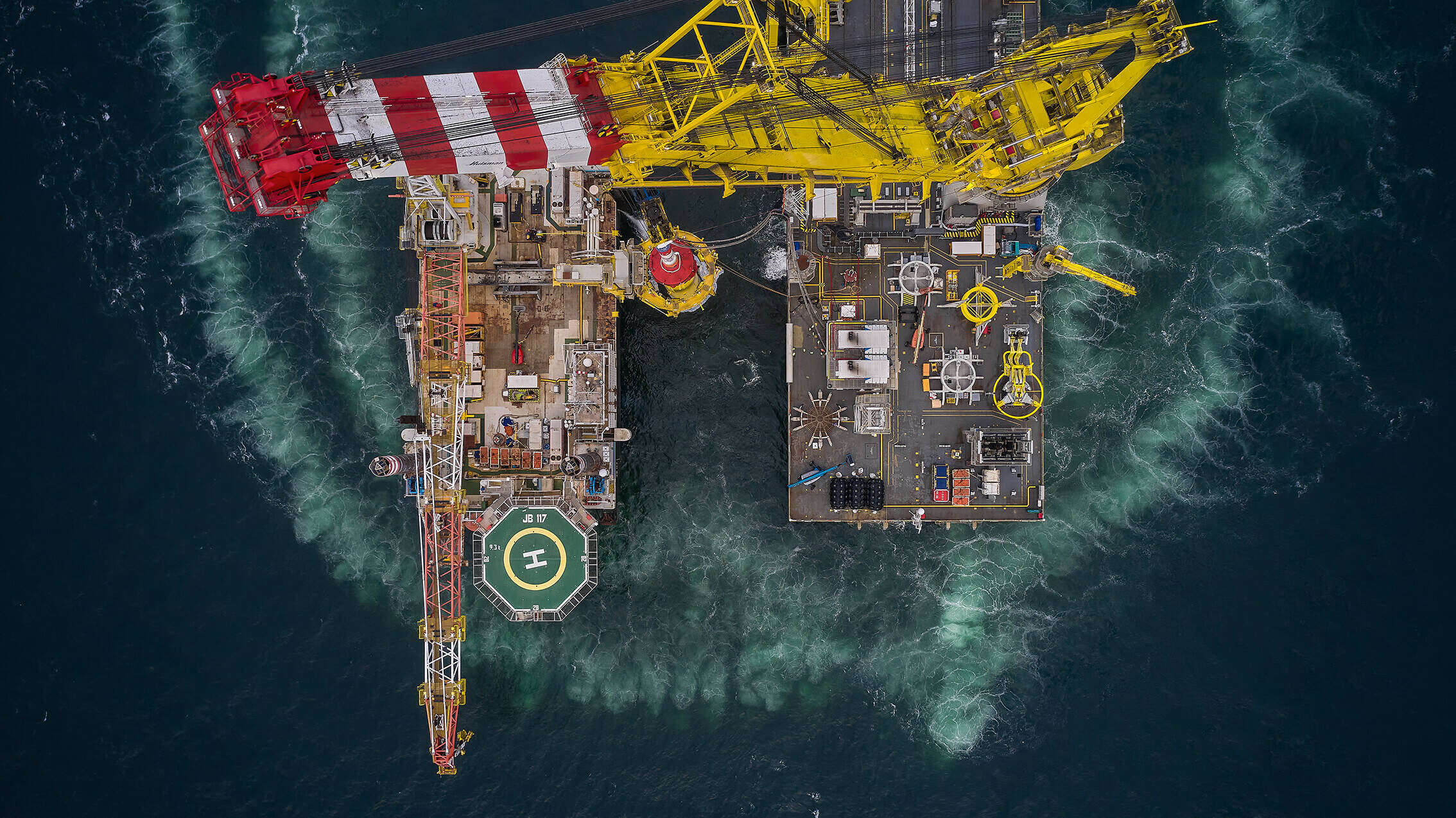
DC transmission is needed to transport large volumes of electricity over long distances. From a certain amount of power (MW) and a certain distance (approx. 100 km) the losses in a HVAC system become too big. In such cases conversion to DC is a more economical solution compared to high-voltage AC.
The Gode Wind 3 offshore substation stands as tall as a 5-storey building and gathers the produced electricity of 23 Gode Wind 3 turbines of 11MW each. The substation converts the 66kV AC to 155kV AC and sends the electricity through a subsea HVAC export cable to the DolWin Kappa convertor station.
tonnes
Extra challenging: the installation needed to be done in floating conditions. The crane vessel Les Alizés is fitted with a powerful dynamic positioning system (DP2), keeping the vessel in position at all times. The barge which carried the offshore substation and modular support frame, moored alongside Les Alizés. The vessel’s main crane picked up its load in floating conditions, a challenge where coordination, precision and weather conditions were key.
After the project kicked-off in July with the installation of the first 6 monopiles for Gode Wind 3, the crane vessel installed her very first offshore substation. The load was lifted and meticulously placed on top of its foundation.
Our next-gen crane vessel Les Alizés successfully installed the heaviest load of the project: a 1,900-tonnes offshore substation topside with connecting modular support frame.
projects, small details
Whether it’s about constructing wind turbines at sea, installing a bridge across a river, or the remediation of a polluted site: large projects only succeed when you pay attention to the smallest details. Even in supersized structures, the margins are narrow, with less than a centimetre to spare.
Let’s take a closer look at the installation of the offshore substation for the Gode Wind 3 offshore wind farm in Germany. A first for Jan De Nul to install an offshore substation, and a first for our newest crane vessel Les Alizés on her maiden assignment.
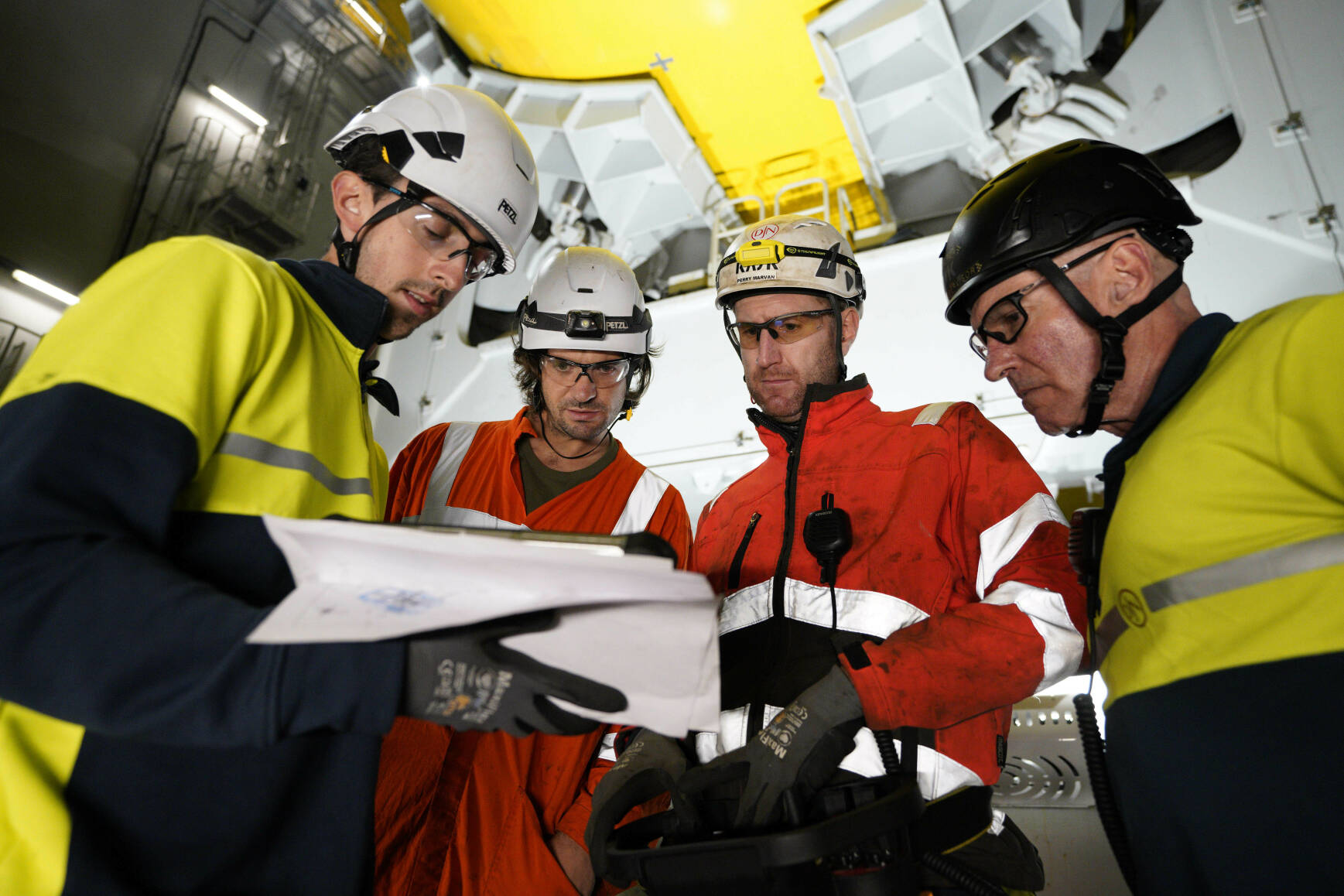


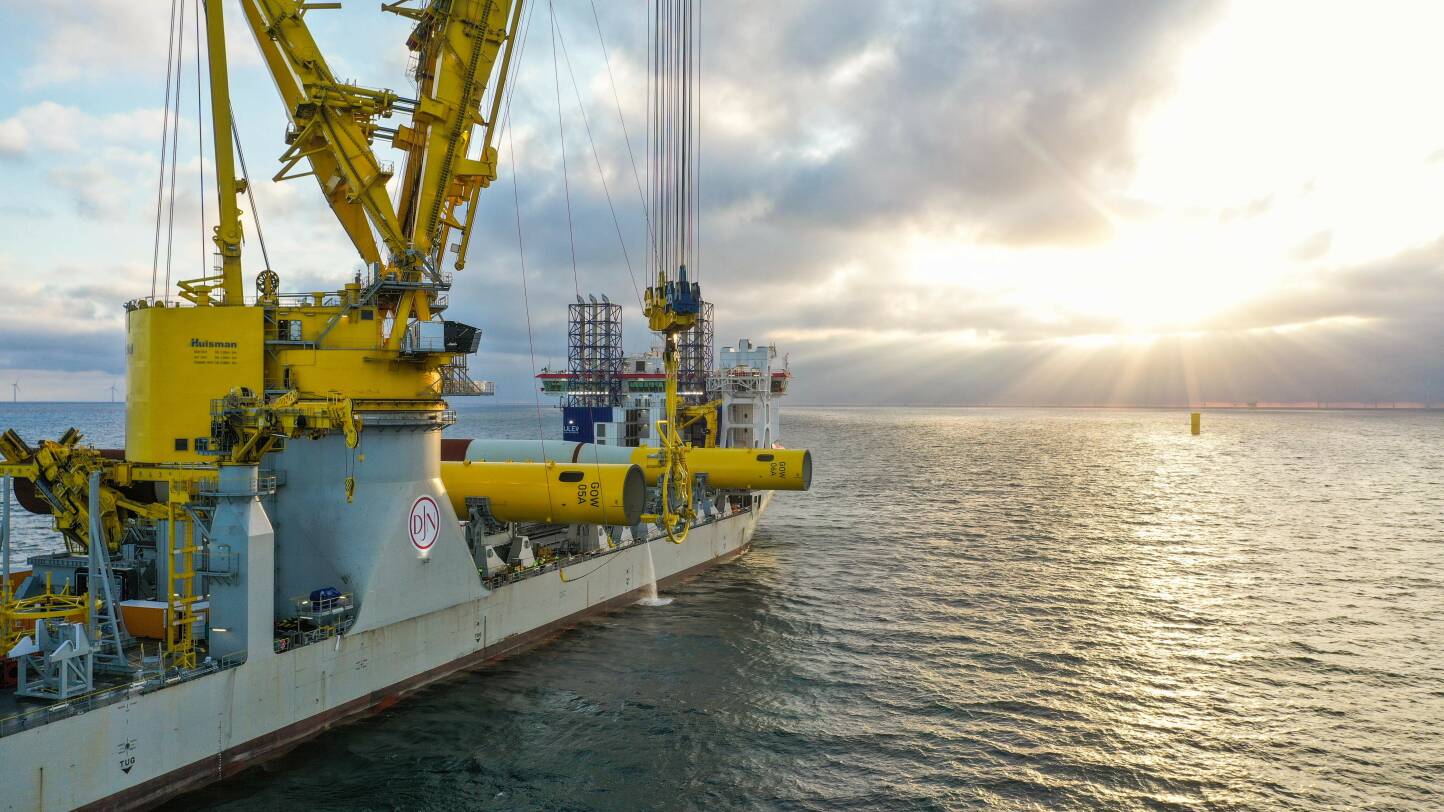
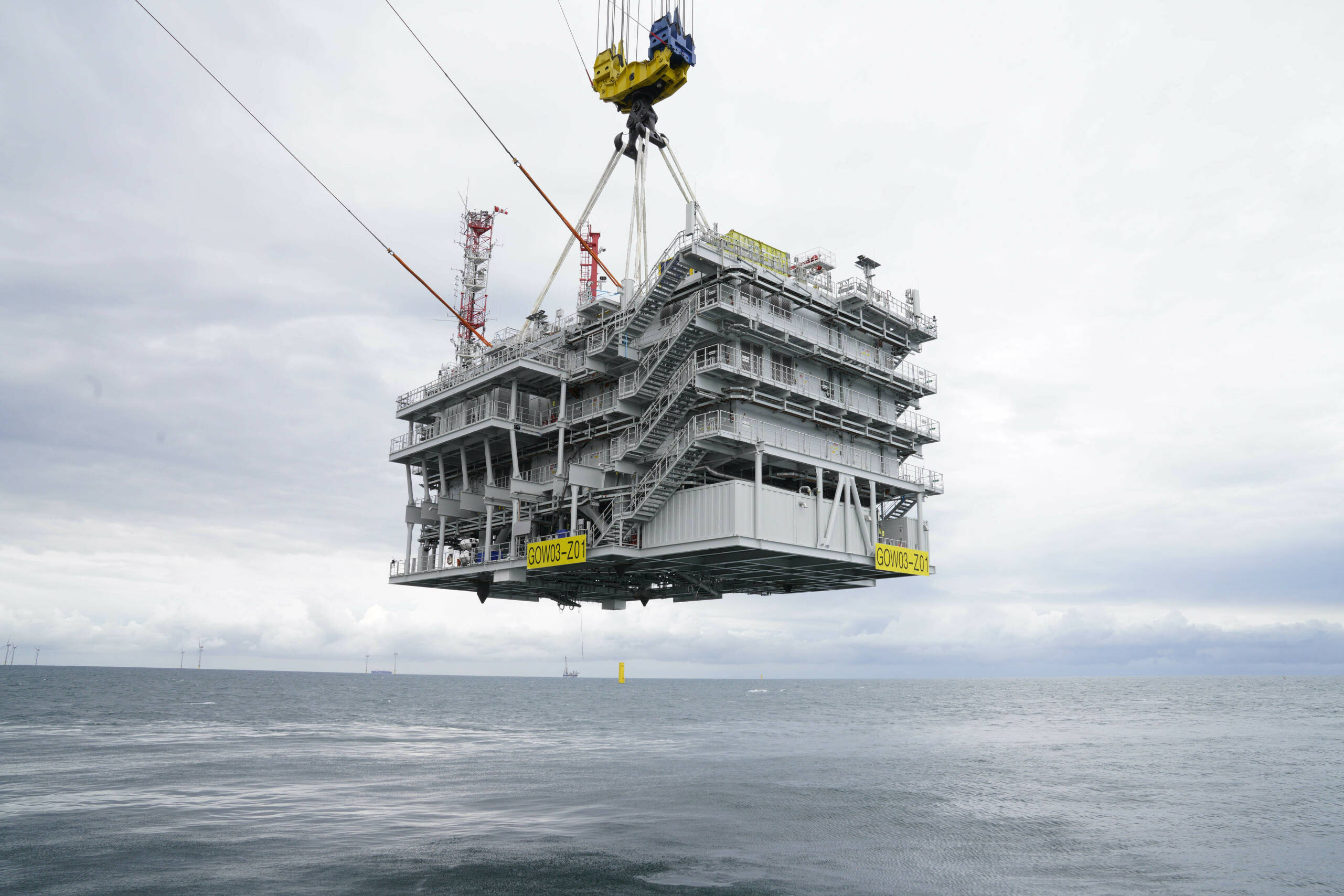
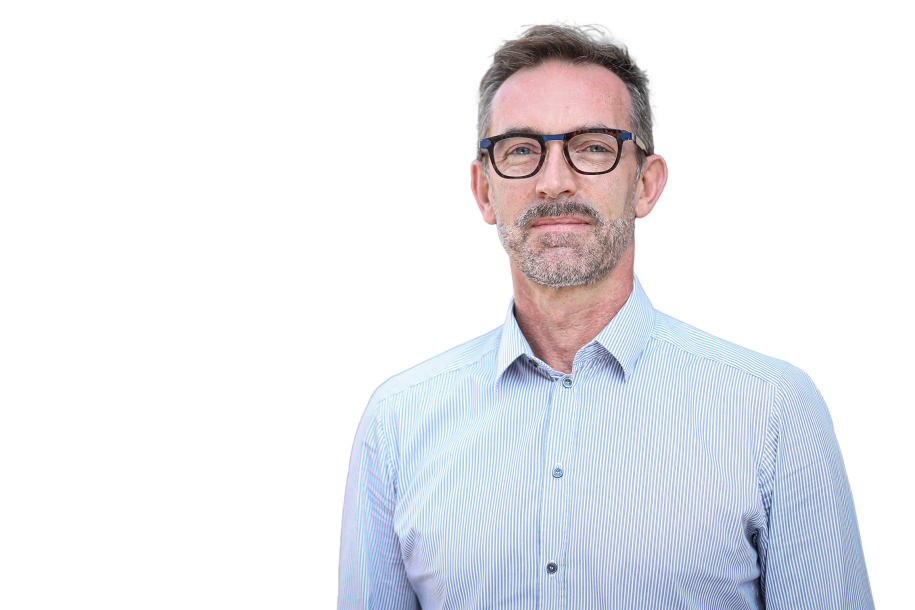






Looking for a partner to realise your offshore projects?
Manager Offshore Renewables
Peter De Pooter

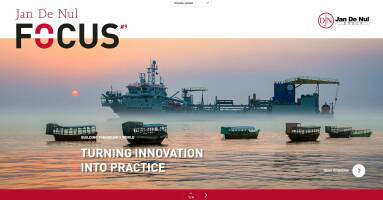
You can find more facts and figures of Les Alizés in our FOCUS #9
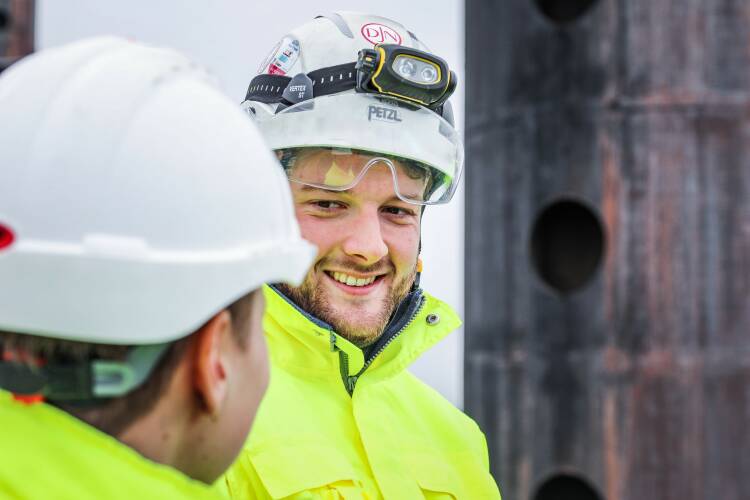
For the installation of the monopile foundations we used the IQ6, the largest hydrohammer in the world, fitted with the PULSE system of IQIP for noise reduction at the source.

The installation of this offshore substation is part of the bigger project Gode Wind 3 offshore wind farm of Ørsted. The construction of this 242 MW offshore wind farm is taking place in parallel with the company’s 900 MW Borkum Riffgrund 3 project. Les Alizés is contracted to install all 107 monopile foundations needed for both wind farms, including this offshore substation and connecting modular support frame.
to reach the
German North Sea
Yard in Saint-Nazaire
of preparations for smooth transport
from Chantier de l’Atlantique to Eemshaven
Windfarm
from Eemshaven to installation location
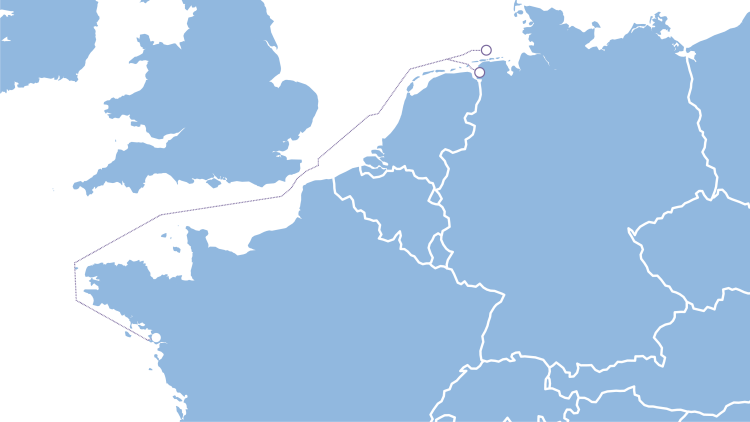
Chantier de l’Atlantique in Saint-Nazaire, France, fabricated the 1,900 tonnes offshore substation and 350 tonnes modular support frame. Because of the size and weight of both components, the transport overseas needed to be prepared meticulously. The size of the barge, the power of the tugboat, the exact position of both components on board, the sea fastening, the position of the rigging tools... everything was prepared down to the last detail, as no manipulation was possible once the barge had left the yard.

A modular support frame connects the monopile foundation to the offshore substation’s topside. Les Alizés lifted the frame onto the monopile after which our team secured it with bolts.
The top of the frame has four connection points onto which the OSS fits, thus anchoring both parts together.
DC transmission is needed to transport large volumes of electricity over long distances. From a certain amount of power (MW) and a certain distance (approx. 100 km) the losses in a HVAC system become too big. In such cases conversion to DC is a more economical solution compared to high-voltage AC.

The larger DolWin Kappa convertor station,
in turn, converts the delivered AC of several German offshore wind farms to 320kV DC. Through a 900MW HVDC DolWin6 export cable link the electricity is brought to shore.
The Netherlands

Germany
distance to shore
Planned wind farms
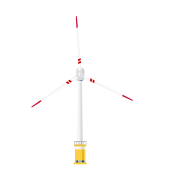

distance to shore
tonnes
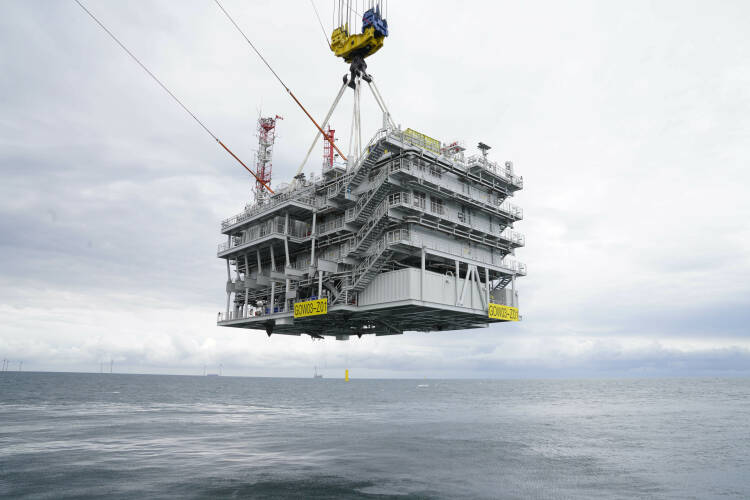
The Gode Wind 3 offshore substation stands as tall as a 5-storey building and gathers the produced electricity of 23 Gode Wind 3 turbines of 11MW each. The substation converts the 66kV AC to 155kV AC and sends the electricity through a subsea HVAC export cable to the DolWin Kappa convertor station.
Extra challenging: the installation needed to be done in floating conditions. The crane vessel Les Alizés is fitted with a powerful dynamic positioning system (DP2), keeping the vessel in position at all times. The barge which carried the offshore substation and modular support frame, moored alongside Les Alizés. The vessel’s main crane picked up its load in floating conditions, a challenge where coordination, precision and weather conditions were key.

After the project kicked-off in July with the installation of the first 6 monopiles for Gode Wind 3, the crane vessel installed her very first offshore substation. The load was lifted and meticulously placed on top of its foundation.
Our next-gen crane vessel Les Alizés successfully installed the heaviest load of the project: a 1,900-tonnes offshore substation topside with connecting modular support frame.
Whether it’s about constructing wind turbines at sea, installing a bridge across a river, or the remediation of a polluted site: large projects only succeed when you pay attention to the smallest details. Even in supersized structures, the margins are narrow, with less than a centimetre to spare.
Let’s take a closer look at the installation of the offshore substation for the Gode Wind 3 offshore wind farm in Germany. A first for Jan De Nul to install an offshore substation, and a first for our newest crane vessel Les Alizés on her maiden assignment.
projects, small details
